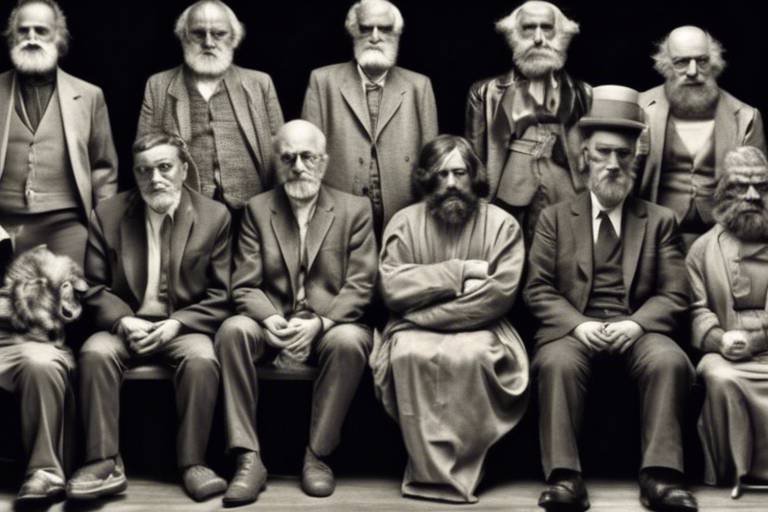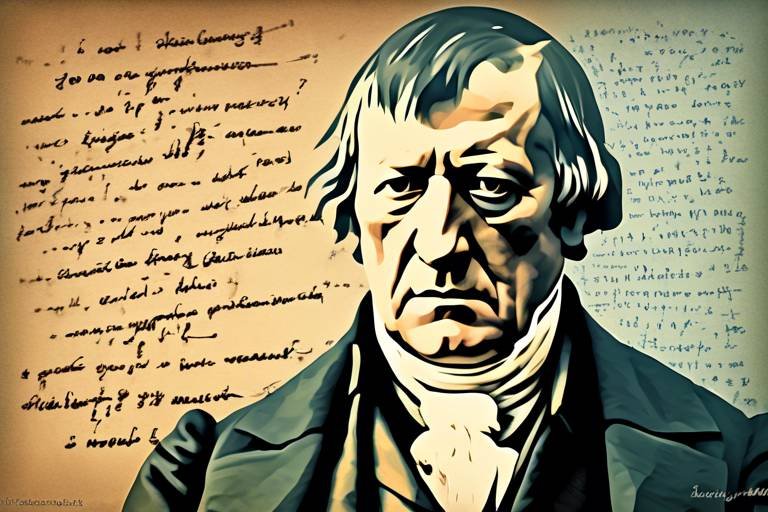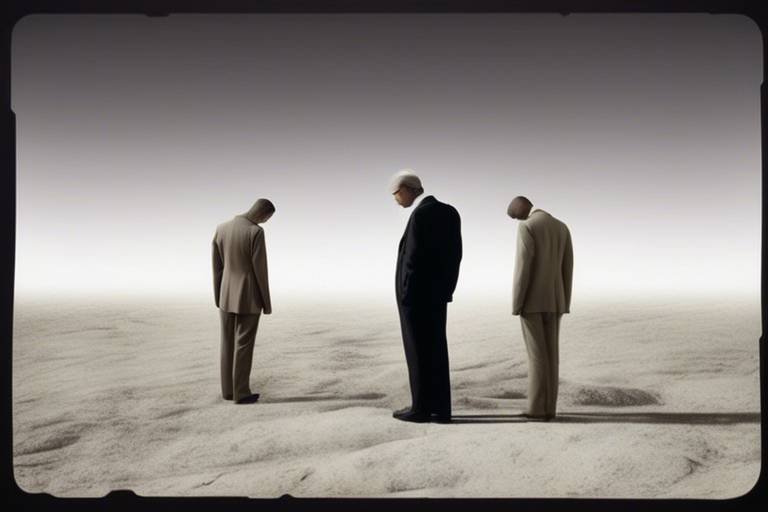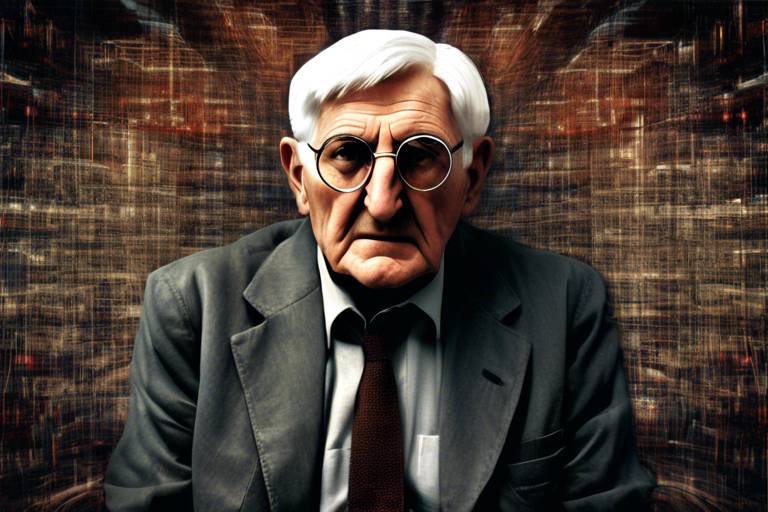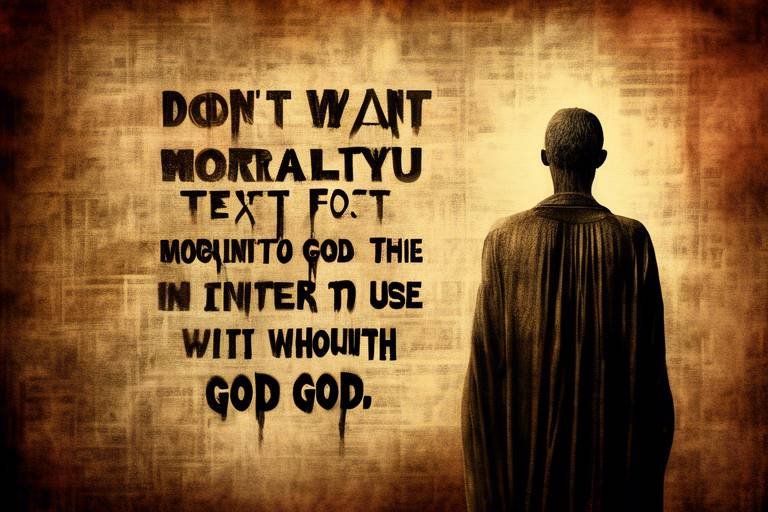Philosophy and Postmodernity - An Analysis
In a world where certainty seems to be fading faster than a Snapchat story, the relationship between philosophy and postmodernity is more relevant than ever. Postmodernity challenges the traditional frameworks that have long governed philosophical thought, urging us to reconsider what we know about truth, knowledge, and existence itself. Imagine standing on a shifting sand dune, where every step you take feels uncertain; that’s the essence of navigating through postmodern philosophy. It’s a landscape rich with complexity, where grand narratives crumble, and the idea of an absolute truth is questioned. This article delves into this intricate relationship, exploring key concepts, influential thinkers, and the profound impact of postmodern thought on contemporary philosophical discourse.
To truly grasp the essence of postmodernism, we must peel back its layers and examine its core principles. At its heart, postmodernism is characterized by a deep skepticism toward grand narratives—those sweeping stories that claim to explain everything about human experience. Think of it as a buffet where each dish represents a different perspective, and the idea of a single, universal truth is tossed out the window. Instead, postmodern thought embraces pluralism—the notion that multiple truths and realities can coexist. This pluralism fosters a rich tapestry of ideas, where cultural, social, and historical contexts shape our understanding of knowledge and existence.
The landscape of postmodern philosophy is dotted with the footprints of influential thinkers who have challenged and reshaped our understanding of truth and knowledge. Among these trailblazers are Jean-François Lyotard, Jacques Derrida, and Michel Foucault. Each of these philosophers has contributed unique insights that have significantly impacted postmodern thought. Their ideas not only question the foundations of traditional philosophy but also invite us to engage with the complexities of our modern world.
In his seminal work, The Postmodern Condition, Lyotard critiques the legitimacy of meta-narratives, which he argues are no longer credible in a world marked by diversity and fragmentation. He introduces the concept of language games, emphasizing that meaning is not fixed but rather fluid, shaped by context and interaction. Imagine a game of charades where every gesture can be interpreted in multiple ways; this is akin to how truths operate in a postmodern society. By embracing the plurality of truths, Lyotard encourages us to acknowledge the richness of human experience while remaining skeptical of any singular narrative claiming to explain it all.
Jacques Derrida’s method of deconstruction invites us to interrogate the assumptions that underpin texts and ideas. It’s like peeling an onion, revealing layers of meaning that often contradict each other. Derrida argues that the interplay of language and power plays a crucial role in shaping our understanding of meaning. By exposing the instability of meaning, he challenges us to recognize that what we often take for granted may be rooted in deeper ideological constructs. In doing so, Derrida opens up a space for critical inquiry, urging us to question the very foundations upon which our beliefs are built.
Michel Foucault explores the intricate relationship between power and knowledge, suggesting that knowledge is not a neutral entity but rather something constructed through social and historical contexts. His work compels us to consider how power dynamics shape what we accept as truth. Imagine a game of chess, where each move is influenced not only by the rules of the game but also by the players' strategies and intentions. Foucault’s insights encourage us to critically examine the sources of our knowledge and the power structures that influence them, pushing us to rethink the very nature of truth.
Postmodernism offers a critical lens through which to view modernist ideals, particularly questioning the notions of progress, rationality, and the universality of modern thought. It highlights the importance of fragmentation and subjectivity, suggesting that human experience cannot be neatly categorized or understood through a singular lens. In a postmodern context, the idea of linear progress is viewed with skepticism, and instead, we are encouraged to appreciate the complexity and diversity of human experiences.
As we navigate the digital age, the influence of technology on philosophical inquiry becomes increasingly apparent. New debates arise concerning identity, reality, and the implications of virtual existence on human experience. In a world where social media and virtual interactions shape our perceptions, we must consider how these technologies alter our understanding of self and community. The digital landscape acts as a mirror, reflecting the complexities of our postmodern existence.
Jean Baudrillard’s concepts of hyperreality and simulacra illustrate how media and technology blur the lines between reality and representation. In a hyperreal world, the distinction between the real and the artificial becomes increasingly ambiguous, leading us to question what we accept as truth. It’s akin to living in a funhouse where mirrors distort our reflections; we may find ourselves grappling with a reality that is more illusion than substance. Baudrillard’s insights compel us to critically evaluate our relationship with media and technology, urging us to seek authenticity in an age of simulation.
Finally, postmodernism raises essential ethical questions, challenging traditional moral frameworks and advocating for a more contextual and pluralistic approach to ethics in contemporary society. In a world where diverse perspectives coexist, the idea of a universal moral truth is increasingly questioned. Instead, postmodern ethics encourages us to consider the specific contexts and narratives that shape our moral beliefs. It’s like navigating a labyrinth, where the path to ethical understanding is complex and multifaceted, requiring us to engage with the stories and experiences of others.
- What is postmodernism?
Postmodernism is a philosophical movement characterized by skepticism toward grand narratives and the embrace of pluralism in thought and culture.
- Who are the key philosophers of postmodernity?
Influential thinkers include Jean-François Lyotard, Jacques Derrida, and Michel Foucault, each contributing unique insights to postmodern thought.
- How does technology influence postmodern philosophy?
Technology transforms philosophical inquiry by raising questions about identity, reality, and the implications of virtual existence on human experience.

Defining Postmodernism
To truly grasp the essence of postmodernism, we must dive into its core principles that challenge the very fabric of traditional thought. At its heart, postmodernism embodies a profound skepticism towards grand narratives—those sweeping stories that claim to explain everything, from history to human experience. Think about it: how often have we accepted a single version of truth without questioning its validity? This is where postmodernism invites us to pause and reconsider.
One of the defining characteristics of postmodern thought is its rejection of absolute truths. In a world where multiple perspectives coexist, the idea that one singular truth can dominate becomes increasingly untenable. Instead, postmodernism celebrates pluralism—the acknowledgment that different cultures, ideas, and experiences contribute to our understanding of reality. This pluralistic approach encourages us to embrace diversity in thought and to appreciate the richness that comes from contrasting viewpoints.
Moreover, postmodernism emphasizes the significance of context. It suggests that our understanding of truth is not only shaped by our individual experiences but also by the cultural and historical circumstances surrounding us. For instance, consider how different societies interpret concepts like justice or love. These interpretations are not universal; they are deeply influenced by the unique narratives of each culture. In this sense, postmodernism acts as a mirror, reflecting the complexities of human experience and urging us to explore the myriad ways in which we construct meaning in our lives.
In summary, defining postmodernism is not a straightforward task. It challenges us to rethink established norms and to question the very foundations of our beliefs. By embracing skepticism, rejecting absolute truths, and celebrating pluralism, postmodernism opens up a landscape of possibilities, inviting us to engage in a rich dialogue about the nature of reality and our place within it.
- What is postmodernism? Postmodernism is a philosophical movement characterized by skepticism toward grand narratives and absolute truths, embracing pluralism and context in understanding reality.
- Who are key thinkers associated with postmodernism? Notable philosophers include Jean-François Lyotard, Jacques Derrida, and Michel Foucault, each contributing significantly to postmodern thought.
- How does postmodernism differ from modernism? While modernism emphasizes progress and rationality, postmodernism critiques these ideals, highlighting fragmentation and subjectivity instead.

Key Philosophers of Postmodernity
Postmodernity is not just a phase in philosophical discourse; it is a complex tapestry woven with the thoughts and ideas of several influential thinkers. Among these, Jean-François Lyotard, Jacques Derrida, and Michel Foucault stand out as pivotal figures who have significantly reshaped our understanding of knowledge, language, and power. Their contributions challenge the very foundations of traditional philosophy, inviting us to reconsider our assumptions about truth and meaning.
Lyotard, in his groundbreaking work The Postmodern Condition, famously declared that "incredulity toward metanarratives" is a hallmark of postmodern thought. What does this mean? Essentially, he argues that the grand narratives—those overarching stories that claim to explain everything, like the Enlightenment's promise of progress—are no longer tenable in a world that values diversity and multiplicity. Instead, Lyotard emphasizes the significance of language games, highlighting how different contexts produce different truths. This idea resonates deeply in today’s multicultural societies, where competing narratives coexist, often leading to rich dialogues but also to conflicts.
Moving on to Jacques Derrida, we encounter the concept of deconstruction, a method that invites us to peel back the layers of meaning in texts. Derrida challenges us to question the assumptions that underpin our interpretations. Have you ever read something and thought, "Wait, that doesn’t quite add up?" That’s the essence of deconstruction. It reveals the instability of meaning and underscores the interplay of language and power. Derrida’s work encourages us to recognize that our understanding of texts is often influenced by cultural and historical contexts, leading to a more nuanced interpretation.
Michel Foucault takes this exploration further by examining the intricate relationship between power and knowledge. His idea of power/knowledge suggests that what we consider to be "truth" is not objective but rather constructed through social and historical processes. For Foucault, knowledge is a tool of power, and power is exercised through the dissemination of knowledge. This perspective invites us to ask critical questions about the sources of our beliefs and the structures that uphold them. Are we truly free thinkers, or are our thoughts shaped by societal forces beyond our control?
These philosophers do not merely critique the past; they also pave the way for new avenues of thought. For instance, their ideas encourage us to embrace a more pluralistic approach to knowledge. In a world where information is abundant but often contradictory, understanding the perspectives of Lyotard, Derrida, and Foucault can help us navigate the complexities of modern existence. Their insights compel us to be vigilant, to question the narratives we encounter daily, and to appreciate the rich tapestry of human thought.
As we delve deeper into the implications of postmodern philosophy, it becomes clear that these thinkers have laid the groundwork for contemporary debates in various fields, from literature and art to politics and ethics. Their legacies continue to spark discussions about the nature of truth, identity, and the role of technology in shaping our realities.
| Philosopher | Key Concept | Notable Work |
|---|---|---|
| Jean-François Lyotard | Incredulity toward metanarratives | The Postmodern Condition |
| Jacques Derrida | Deconstruction | Of Grammatology |
| Michel Foucault | Power/Knowledge | Discipline and Punish |
In conclusion, the contributions of these key philosophers of postmodernity are invaluable. Their thoughts challenge us to rethink our understanding of reality and encourage a more critical engagement with the world around us. As we continue to grapple with the implications of their ideas, we find ourselves better equipped to navigate the complexities of contemporary life.
- What is postmodernism? Postmodernism is a philosophical movement characterized by skepticism toward grand narratives and the embrace of pluralism in thought and culture.
- Who are the key philosophers associated with postmodernity? Key philosophers include Jean-François Lyotard, Jacques Derrida, and Michel Foucault, each contributing unique perspectives on knowledge and power.
- How does technology influence postmodern thought? Technology blurs the lines between reality and representation, leading to new debates about identity, ethics, and the nature of truth.

Lyotard's The Postmodern Condition
In his groundbreaking work, The Postmodern Condition, Jean-François Lyotard challenges the very foundation of how we perceive knowledge and truth in society. He argues that the age of postmodernity is characterized by a profound skepticism toward grand narratives—those overarching stories that claim to explain everything from history to science. Instead of adhering to a single, unified theory, Lyotard posits that we are now living in a world of diverse perspectives and fragmented truths. This shift invites us to embrace a more pluralistic view of knowledge, where multiple voices and interpretations coexist, each holding its own validity.
Lyotard introduces the concept of language games, which refers to the idea that meaning is constructed through the use of language in specific contexts. Just as players in a game must follow certain rules, individuals within a discourse must navigate the complexities of language to convey their thoughts. This leads to the understanding that knowledge is not a fixed entity; rather, it is fluid and subject to change based on the context in which it is expressed. In this postmodern landscape, the significance of truth is no longer absolute but is instead shaped by cultural, social, and historical factors.
Lyotard's critique extends to the implications of technology on knowledge dissemination. With the rise of the internet and digital communication, the ways in which we share and consume information have transformed dramatically. In a world where information is abundant and easily accessible, the challenge lies in discerning credible sources from unreliable ones. This democratization of knowledge can be liberating, but it also raises questions about the reliability of what we consider to be truth.
Furthermore, Lyotard's emphasis on the plurality of truths leads to a reevaluation of the role of the intellectual in society. In a postmodern context, intellectuals are no longer seen as gatekeepers of knowledge but rather as participants in a broader conversation. This shift encourages a more inclusive dialogue, where marginalized voices can be heard and valued. As we navigate this complex terrain, it becomes essential to question our assumptions and engage with diverse perspectives, fostering a richer understanding of the world around us.
In summary, Lyotard's The Postmodern Condition serves as a crucial text in understanding the transformation of knowledge in the postmodern era. By rejecting grand narratives and advocating for a multiplicity of voices, Lyotard invites us to rethink our relationship with truth and knowledge, challenging us to embrace the complexities of a world that is anything but straightforward.
- What is the main argument of Lyotard's The Postmodern Condition?
Lyotard argues that in a postmodern society, grand narratives are no longer credible, leading to a plurality of truths and knowledge constructed through language games. - How does technology influence knowledge in postmodernity?
Technology democratizes information access but complicates the discernment of credible sources, challenging traditional notions of truth. - What is the significance of language games in Lyotard's philosophy?
Language games highlight the contextual nature of meaning, emphasizing that knowledge is fluid and shaped by social and cultural factors.

Derrida's Deconstruction
Jacques Derrida, a pivotal figure in postmodern philosophy, introduced the concept of deconstruction, a method that invites us to critically examine texts and the assumptions that underpin them. At its core, deconstruction challenges the idea that texts possess a single, definitive meaning. Instead, Derrida posits that meaning is inherently unstable and fluid, shaped by the interplay of language, context, and interpretation. This approach is akin to peeling back the layers of an onion, revealing the complexities and contradictions that lie beneath the surface.
One of the most significant contributions of Derrida's deconstruction is its ability to expose the binary oppositions that often dominate philosophical discourse. For example, consider the dichotomy of presence versus absence. Traditional philosophy tends to privilege presence, suggesting that what is immediately available is more real or significant than what is not. However, Derrida's work reveals that absence is equally crucial in constructing meaning. Without absence, presence loses its significance, much like how light cannot be understood without the concept of darkness.
Derrida's deconstruction also emphasizes the role of language in shaping our understanding of reality. He famously stated, "There is nothing outside the text," which suggests that our perceptions and interpretations are mediated through language. This assertion leads to the realization that the act of reading is not merely a passive reception of information but an active engagement with the text. As readers, we bring our own experiences, biases, and contexts into our interpretations, which further complicates the notion of objective understanding.
Moreover, Derrida's method is not just an academic exercise; it has profound implications for various fields, including literature, law, and ethics. By applying deconstruction, scholars and practitioners can unveil the underlying assumptions that inform legal texts, literary works, and moral frameworks. This practice encourages a more nuanced understanding of the complexities inherent in human thought and societal structures.
In essence, Derrida's deconstruction serves as a powerful tool for questioning established norms and challenging the status quo. It invites us to embrace ambiguity and uncertainty, urging us to recognize that our understanding of truth is often a reflection of the cultural and historical contexts in which we find ourselves. In a world increasingly characterized by pluralism and diversity, Derrida's insights remind us that there is no single narrative that can encapsulate the richness of human experience.
- What is deconstruction? Deconstruction is a critical approach developed by Jacques Derrida that seeks to reveal the complexities and contradictions within texts, challenging the notion of a single, fixed meaning.
- How does deconstruction relate to language? Derrida argues that language shapes our understanding of reality, and meaning is constructed through the interplay of words, context, and interpretation.
- What are the implications of deconstruction for other fields? Deconstruction has significant implications for literature, law, and ethics, as it encourages a more nuanced understanding of the assumptions that inform these areas.
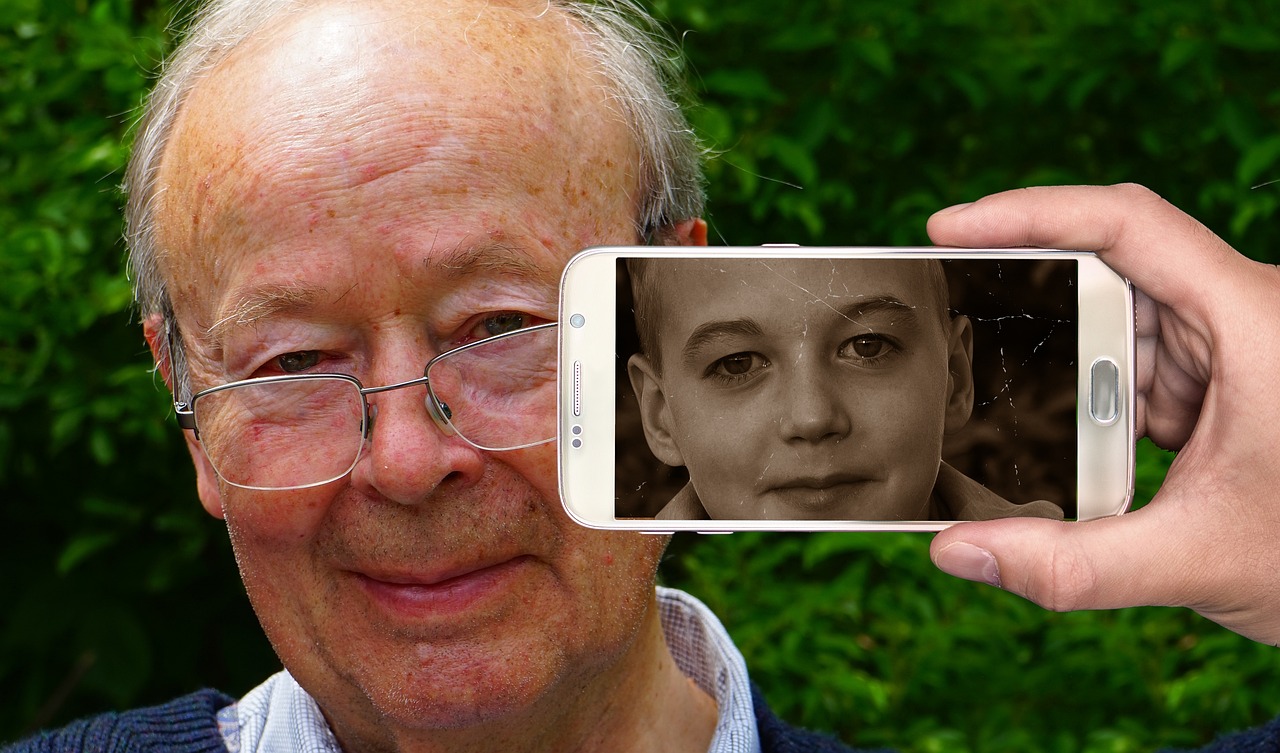
Foucault's Power/Knowledge
Michel Foucault, a towering figure in postmodern philosophy, profoundly reshaped our understanding of the relationship between power and knowledge. In his works, especially in "Discipline and Punish" and "The History of Sexuality," Foucault argues that knowledge is not merely a tool for understanding the world; instead, it is intricately linked to power dynamics within society. This relationship suggests that what we accept as 'truth' is often a product of social constructs rather than an objective reality. In essence, Foucault challenges us to rethink how we perceive knowledge and its implications on our lives.
Foucault's concept of power/knowledge posits that power is not just repressive but also productive. It shapes our thoughts, behaviors, and even our identities. For instance, consider the way societal norms dictate what is considered 'normal' or 'deviant.' This is not merely a reflection of biological or natural truths but rather a manifestation of historical and cultural power relations. In this light, knowledge becomes a means of control, where those in power define what constitutes legitimate knowledge, often marginalizing alternative perspectives.
To illustrate this point, Foucault introduces the idea of discourses. Discourses are frameworks of knowledge that shape our understanding of reality. They dictate how we talk about issues such as sexuality, mental health, and crime. The power embedded in these discourses can have profound consequences, influencing everything from legislation to personal identity. For example, the medical discourse surrounding mental health has evolved over time, reflecting shifts in power dynamics and societal understanding. This evolution showcases how knowledge is not static; it is fluid and constantly reshaped by cultural and political forces.
Moreover, Foucault emphasizes the importance of examining the historical context in which knowledge is produced. He argues that knowledge is always situated within a specific time and place, influenced by the prevailing power structures. This perspective invites us to question the validity of what we accept as 'truth' and to recognize the biases that may underlie our understanding. By doing so, we can begin to uncover the often invisible power relations that shape our lives.
In summary, Foucault's exploration of power/knowledge urges us to critically analyze the sources of our knowledge and the power dynamics at play. It challenges us to recognize that knowledge is not just a reflection of reality but a complex interplay of social forces that can either liberate or constrain us. By understanding this relationship, we can better navigate the intricate web of power that influences our identities and societal structures.
- What is Foucault's main argument regarding power and knowledge?
Foucault argues that power and knowledge are intertwined, suggesting that what we consider 'truth' is often shaped by social and historical contexts rather than objective reality. - How do discourses influence our understanding of reality?
Discourses shape the frameworks through which we interpret issues, dictating norms and values that can marginalize certain perspectives while legitimizing others. - Why is historical context important in Foucault's analysis?
Historical context is crucial because it reveals how knowledge is shaped by the power structures of a specific time and place, challenging the notion of universal truths.

Postmodern Critiques of Modernism
Postmodernism emerges as a vibrant critique of modernism, challenging its foundational beliefs and ideals. At the heart of this critique lies a fundamental skepticism toward the very notion of progress, which modernism holds as a guiding principle. Modernists believed in the power of reason, science, and technology to usher humanity into a brighter future. However, postmodern thinkers argue that this unwavering faith in progress often overlooks the complexities and contradictions of human experience. They suggest that history is not a linear path but rather a series of fragmented narratives shaped by diverse perspectives.
One of the most significant critiques posited by postmodern theorists is the questioning of rationality itself. Modernism champions rational thought as the key to understanding the world, but postmodernism invites us to consider how subjective experiences and cultural contexts influence our perceptions of reality. This perspective emphasizes that what we deem as 'rational' is often colored by social constructs and historical contingencies. In essence, postmodernism argues that there is no single, universal truth; instead, there are multiple truths that coexist, often in tension with one another.
Furthermore, postmodernism critiques the modernist belief in universality. While modernism often seeks to establish norms and standards that are applicable to all, postmodernism celebrates pluralism and diversity. It recognizes that different cultures, identities, and experiences contribute to a rich tapestry of human life. This multiplicity challenges the idea that any single narrative can encapsulate the entirety of human experience. Instead, postmodern thinkers advocate for a more inclusive approach that acknowledges the voices and stories of marginalized groups.
In addition, the postmodern critique extends to the concept of identity. Modernism tends to promote fixed identities based on rational categories, such as nationality, gender, or class. In contrast, postmodernism views identity as fluid and dynamic. It recognizes that individuals navigate multiple identities that can shift depending on context and circumstance. This fluidity opens up new possibilities for self-expression and challenges rigid societal norms.
To illustrate these critiques, consider the following table that summarizes key differences between modernism and postmodernism:
| Aspect | Modernism | Postmodernism |
|---|---|---|
| View of Progress | Linear and inevitable | Fragmented and uncertain |
| Rationality | Objective and universal | Subjective and contextual |
| Truth | Single and absolute | Multiple and relative |
| Identity | Fixed and defined | Fluid and dynamic |
In conclusion, the postmodern critique of modernism is a profound and multifaceted exploration of how we understand our world. By questioning the very foundations of modern thought, postmodernism invites us to embrace complexity, celebrate diversity, and recognize the rich tapestry of human experience. It challenges us to rethink our assumptions and engage with the world in a more nuanced and reflective manner.
- What is postmodernism? Postmodernism is a philosophical movement that emerged in the mid-20th century, characterized by skepticism toward grand narratives and a focus on pluralism and relativism.
- How does postmodernism differ from modernism? While modernism emphasizes progress, rationality, and universal truths, postmodernism critiques these notions, advocating for complexity, subjectivity, and multiple perspectives.
- Who are some key philosophers associated with postmodernism? Influential thinkers include Jean-François Lyotard, Jacques Derrida, and Michel Foucault, each contributing unique insights to postmodern thought.
- What role does technology play in postmodern philosophy? Technology influences postmodern thought by reshaping our understanding of identity and reality, particularly in the context of media and virtual existence.

The Influence of Technology on Postmodern Thought
In today's fast-paced digital landscape, the interplay between technology and philosophy has become more pronounced than ever. The emergence of the internet and digital media has not only reshaped our daily lives but has also profoundly influenced philosophical inquiry. This transformation raises intriguing questions about identity, reality, and how we perceive the world around us. Have you ever wondered how social media affects our understanding of self? Or how virtual realities challenge the very notion of existence? These questions lie at the heart of postmodern thought, which seeks to unravel the complexities of contemporary human experience.
One of the most significant impacts of technology on postmodern philosophy is the concept of hyperreality, introduced by the French theorist Jean Baudrillard. Hyperreality refers to a condition in which the distinction between reality and simulation becomes blurred. In a world saturated with images, signs, and representations, we often find ourselves navigating a landscape where what is 'real' is overshadowed by what is perceived. For instance, consider how reality television presents a curated version of life that can feel more 'real' to viewers than their own experiences. This phenomenon raises critical questions: Are we living in a simulation? How does this affect our understanding of authenticity?
Moreover, Baudrillard's notion of simulacra further complicates our grasp of truth in a postmodern context. Simulacra are copies or representations of things that no longer have an original reference point. Think about advertisements or social media influencers who create idealized versions of life that can distort our expectations and desires. This leads us to a world where the distinction between the real and the fake is increasingly difficult to discern. As we immerse ourselves in digital realities, the implications for our identity and interpersonal relationships are profound. Do we become our online personas, or do they merely reflect facets of our true selves?
As we delve deeper into the influence of technology, we must also consider the ethical implications it brings. Postmodernism challenges traditional moral frameworks, advocating for a more contextual and pluralistic approach to ethics. In a world where information is readily available at our fingertips, the question arises: how should we navigate the complexities of digital ethics? For example, issues such as data privacy, surveillance, and misinformation demand a reevaluation of our moral responsibilities in the digital age. Are we merely consumers of information, or do we have a duty to critically engage with the content we encounter?
The rise of technology has also fostered new forms of community and interaction. Social media platforms allow individuals to connect across vast distances, creating virtual communities that transcend geographical boundaries. However, this connectivity comes with its own set of challenges. The phenomenon of echo chambers, where individuals are exposed only to information that reinforces their existing beliefs, highlights a critical tension in the postmodern experience. Are these digital interactions enriching our lives, or do they further entrench divisions within society? The answers to these questions remain elusive, inviting ongoing philosophical exploration.
In summary, the influence of technology on postmodern thought is a multifaceted issue that invites us to reconsider our understanding of reality, identity, and ethics. As we navigate this digital landscape, it is essential to remain vigilant and critical of the information we consume and the identities we construct. In this ever-evolving world, the dialogue between technology and philosophy will undoubtedly continue to shape our collective consciousness.
- What is hyperreality? Hyperreality is a condition where the distinction between reality and simulation becomes blurred, often influenced by media and technology.
- How does technology affect our identity? Technology can shape our identities through online personas and social media interactions, often leading to questions about authenticity.
- What ethical challenges arise from technology? Issues such as data privacy, misinformation, and digital surveillance challenge traditional moral frameworks, necessitating a more contextual approach to ethics.
- Are virtual communities beneficial? While virtual communities can foster connections, they can also create echo chambers that reinforce existing beliefs, leading to societal divisions.
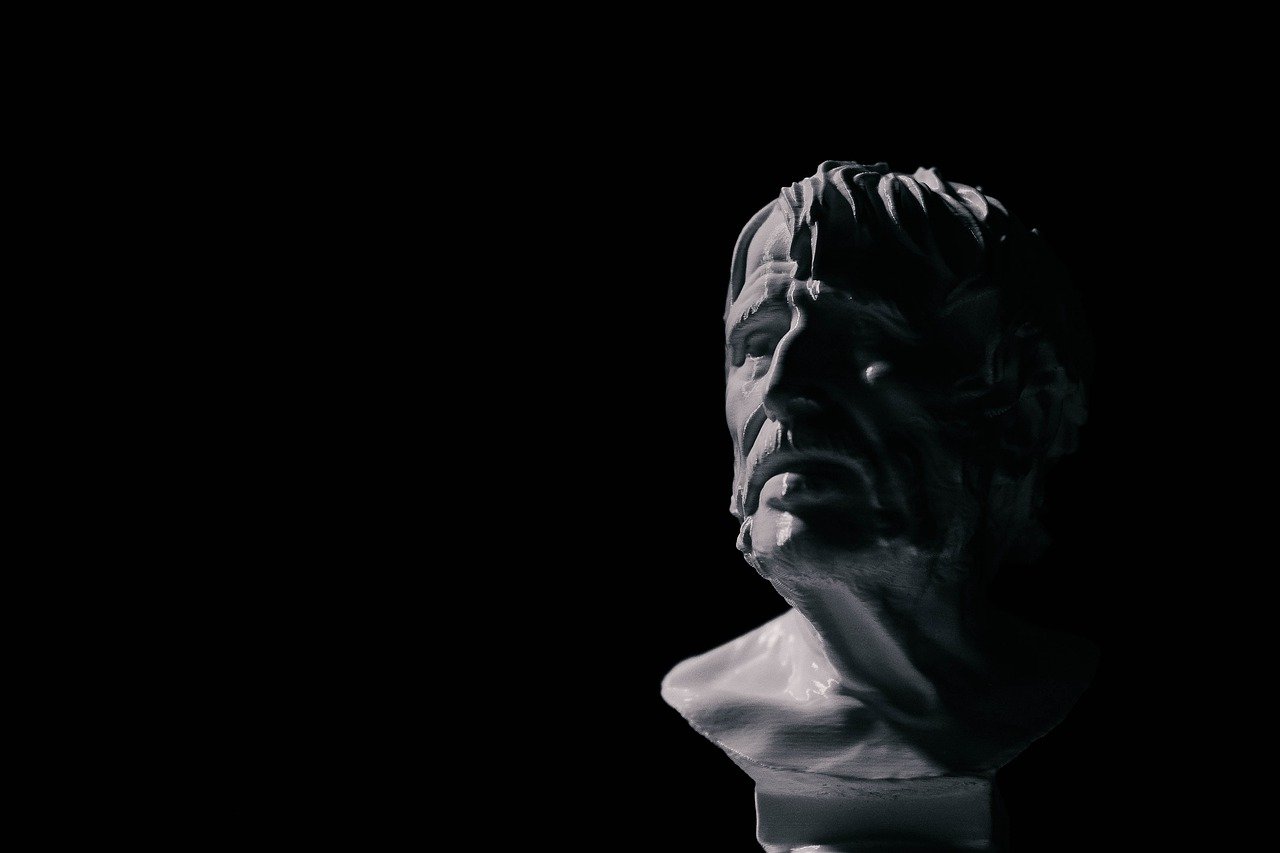
Hyperreality and Simulacra
The concepts of hyperreality and simulacra, introduced by the French sociologist and philosopher Jean Baudrillard, serve as crucial tools for understanding the complexities of our modern existence. In a world saturated with media and technology, distinguishing between what is real and what is merely a representation has become increasingly challenging. Hyperreality refers to a condition in which the distinction between reality and simulation blurs, creating a state where the representation of things becomes more significant than the things themselves. Imagine living in a world where the image or simulation of an experience is often more desirable or impactful than the actual experience. This phenomenon is pervasive in our daily lives, from social media filters that enhance our appearances to virtual reality experiences that offer an escape from the mundane.
Baudrillard elaborates on this idea by suggesting that in a hyperreal world, the simulacrum—a copy without an original—becomes the norm. This leads to a scenario where we engage with representations rather than the authentic article. For instance, think about how we consume news today. With the rise of 24-hour news cycles and social media platforms, news is often presented not as a reflection of reality but as a crafted narrative designed to capture attention. This creates a hyperreal landscape where sensationalism and spectacle overshadow the truth. The implications of such a shift are profound, affecting everything from politics to personal relationships.
To illustrate this further, consider the following table that summarizes the differences between reality, representation, and hyperreality:
| Aspect | Reality | Representation | Hyperreality |
|---|---|---|---|
| Definition | What actually exists | A depiction of reality | A blend of reality and representation |
| Example | A physical event (e.g., a concert) | A video of the concert | Live-streaming the concert with added effects |
| Perception | Objective | Subjective interpretation | Subjective and often distorted |
In this hyperreal environment, individuals often find themselves navigating a landscape where their perceptions are shaped more by media narratives than by direct experiences. This raises significant questions about authenticity and the nature of truth. Are we genuinely experiencing life, or are we merely consuming a series of curated representations? The implications extend into various domains, including consumer behavior, political discourse, and even our personal identities. As we become more immersed in hyperreality, we must ask ourselves: what happens to our sense of self when our identities are constructed through the lens of media portrayals?
Ultimately, Baudrillard's ideas compel us to reflect on the nature of our reality in a world increasingly dominated by images and simulations. As we grapple with the complexities of hyperreality, we must remain vigilant about the narratives we consume and the realities we construct. In a sense, embracing this awareness can empower us to reclaim our experiences from the clutches of hyperreality, fostering a more authentic engagement with the world around us.
- What is hyperreality? Hyperreality is a condition in which the distinction between reality and simulation blurs, often leading individuals to engage more with representations than with actual experiences.
- Who introduced the concepts of hyperreality and simulacra? The French sociologist and philosopher Jean Baudrillard introduced these concepts.
- How do hyperreality and simulacra affect our daily lives? They influence how we perceive reality, often causing individuals to prioritize media representations over direct experiences.
- What are some examples of hyperreality in modern culture? Examples include social media filters, curated news narratives, and virtual reality experiences that create an enhanced version of reality.

Ethics in a Postmodern World
In the swirling chaos of postmodernity, where everything seems up for debate, the realm of ethics finds itself in a particularly intriguing position. Traditional moral frameworks, which once provided a clear-cut guide to right and wrong, are now being scrutinized under the lens of skepticism and pluralism. It's as if we’ve been handed a kaleidoscope instead of a ruler, and the resulting view is both beautiful and bewildering. But what does this mean for our understanding of ethics in a world that often feels like it's spinning out of control?
At the heart of postmodern ethics is the idea that morality is not a one-size-fits-all concept. Instead, it’s a complex tapestry woven from various cultural, historical, and social threads. This leads to a more contextual approach to ethics, where the circumstances surrounding a moral decision are just as important as the decision itself. Imagine trying to solve a puzzle without knowing the picture on the box; that’s how challenging it can be to apply rigid ethical standards in a world bursting with diverse perspectives.
One of the key tenets of postmodern ethics is the rejection of absolute truths. In a postmodern world, the idea that there is a single, universal moral truth becomes increasingly untenable. Instead, we find ourselves navigating a landscape filled with competing narratives and differing values. This plurality can be liberating, allowing for a more inclusive dialogue about what constitutes ethical behavior. However, it can also lead to moral relativism, where anything goes and accountability becomes a slippery slope.
To illustrate this point, consider the following scenarios:
- Scenario 1: A business owner must decide whether to cut costs by outsourcing labor to a country with lower wages. From a utilitarian perspective, this could be justified if it leads to greater overall profit. However, from a deontological standpoint, this might be seen as unethical due to the exploitation of workers.
- Scenario 2: A healthcare provider faces a moral dilemma when deciding how to allocate limited resources. Should they prioritize patients based on need, or should they consider factors like social status or contribution to society? Each choice reflects different ethical frameworks, highlighting the complexity of moral decision-making.
These scenarios exemplify the challenges faced in postmodern ethics, where multiple viewpoints can lead to conflicting conclusions. Moreover, the rise of technology and social media complicates matters further. With the instantaneous sharing of information, ethical dilemmas are often amplified in the public sphere, leading to widespread debate and, at times, outrage. The question then arises: how do we navigate these murky waters without a clear moral compass?
In response, many contemporary ethicists advocate for a more dialogical approach to ethics, emphasizing the importance of conversation and understanding over dogma. This means engaging with diverse perspectives, listening to marginalized voices, and recognizing that our own moral beliefs are often shaped by our unique experiences. By fostering a culture of dialogue, we can begin to build a more nuanced understanding of ethics that reflects the complexities of our interconnected world.
Ultimately, postmodern ethics invites us to embrace uncertainty and ambiguity. Instead of seeking definitive answers, we are encouraged to ask questions, challenge assumptions, and remain open to the possibility that our understanding of right and wrong may evolve over time. It’s a journey rather than a destination, one that requires humility and a willingness to learn from one another.
- What is postmodern ethics? Postmodern ethics refers to a moral framework that emphasizes the contextual nature of ethical decisions, rejecting absolute truths and embracing pluralism.
- How does technology impact ethics today? Technology amplifies ethical dilemmas by facilitating the rapid dissemination of information and diverse perspectives, leading to public debate and scrutiny.
- Can postmodern ethics provide guidance for decision-making? While it may not offer clear-cut answers, postmodern ethics encourages dialogue and engagement with multiple viewpoints, fostering a more nuanced approach to moral issues.
Frequently Asked Questions
- What is postmodernism?
Postmodernism is a philosophical movement that emerged in the mid-20th century, characterized by skepticism towards grand narratives and ideologies. It questions the existence of absolute truths and embraces a pluralistic approach to thought and culture. Essentially, it's like looking at the world through a kaleidoscope, where multiple perspectives coexist and shape our understanding of reality.
- Who are some key philosophers associated with postmodernism?
Some influential thinkers in postmodern philosophy include Jean-François Lyotard, Jacques Derrida, and Michel Foucault. Each of these philosophers has contributed significantly to the discourse, challenging traditional frameworks and encouraging us to rethink our assumptions about knowledge, power, and truth.
- What is Lyotard's concept of 'the postmodern condition'?
Lyotard's 'the postmodern condition' critiques the legitimacy of meta-narratives, or overarching stories that claim to explain historical events or human experiences. He argues that in a postmodern society, we should focus on language games and recognize the plurality of truths that exist rather than seeking a single, definitive narrative.
- How does Derrida's deconstruction work?
Derrida's deconstruction is a method that encourages readers to question the underlying assumptions in texts. It reveals how meaning is not fixed but rather unstable, shaped by the interplay of language and power. Think of it as peeling an onion; each layer exposes new interpretations and complexities.
- What is Foucault's view on power and knowledge?
Foucault explores the intricate relationship between power and knowledge, suggesting that what we consider to be 'truth' is actually constructed through social and historical contexts. He challenges the idea of objective truth, emphasizing that knowledge is influenced by power dynamics and societal structures.
- How does postmodernism critique modernism?
Postmodernism critiques modernist ideals by questioning concepts such as progress, rationality, and universality. It emphasizes fragmentation and subjectivity, suggesting that our understanding of the world is not linear or absolute, but rather a mosaic of experiences and interpretations.
- What role does technology play in postmodern thought?
In the digital age, technology has transformed philosophical inquiry, sparking debates about identity, reality, and the implications of virtual existence. It raises questions about how our online interactions shape our understanding of self and truth, leading to discussions on hyperreality and simulacra.
- What are hyperreality and simulacra?
Hyperreality, a concept introduced by Baudrillard, refers to the blurred lines between reality and representation, where the distinction between the real and the artificial becomes indistinguishable. Simulacra are copies or representations of things that no longer have an original, leading us to question what is real in a world saturated with media and technology.
- How does postmodernism address ethics?
Postmodernism raises significant ethical questions by challenging traditional moral frameworks. It advocates for a more contextual and pluralistic approach to ethics, suggesting that moral truths are not universal but rather shaped by cultural and social contexts. This perspective encourages us to consider multiple viewpoints in ethical discussions.

